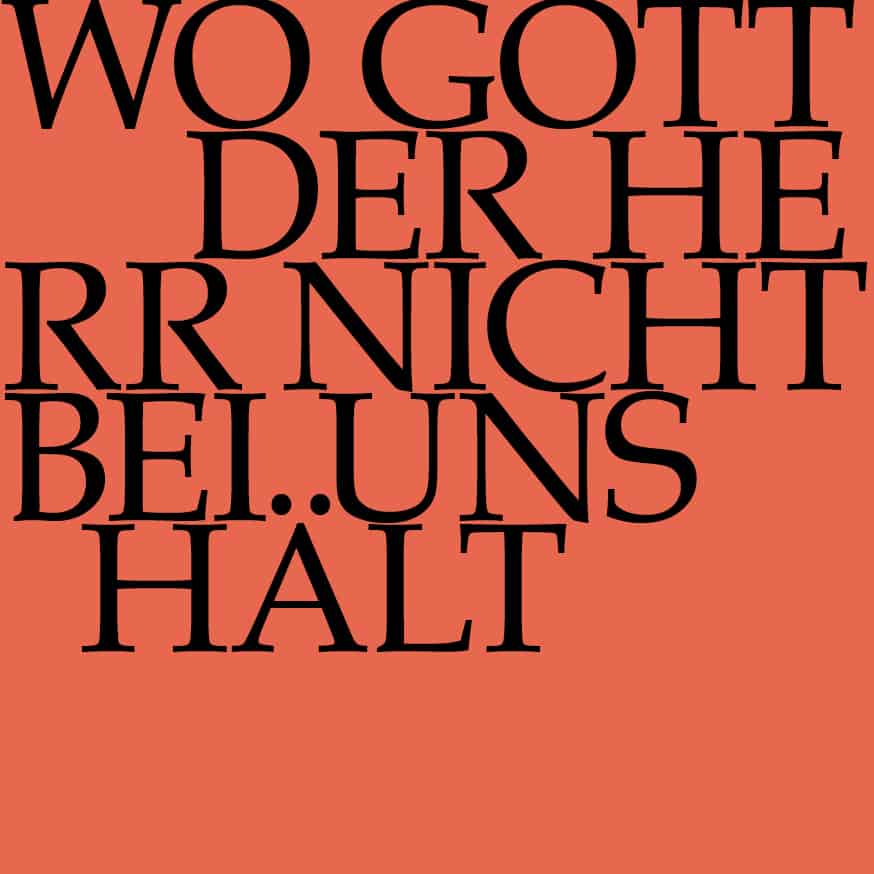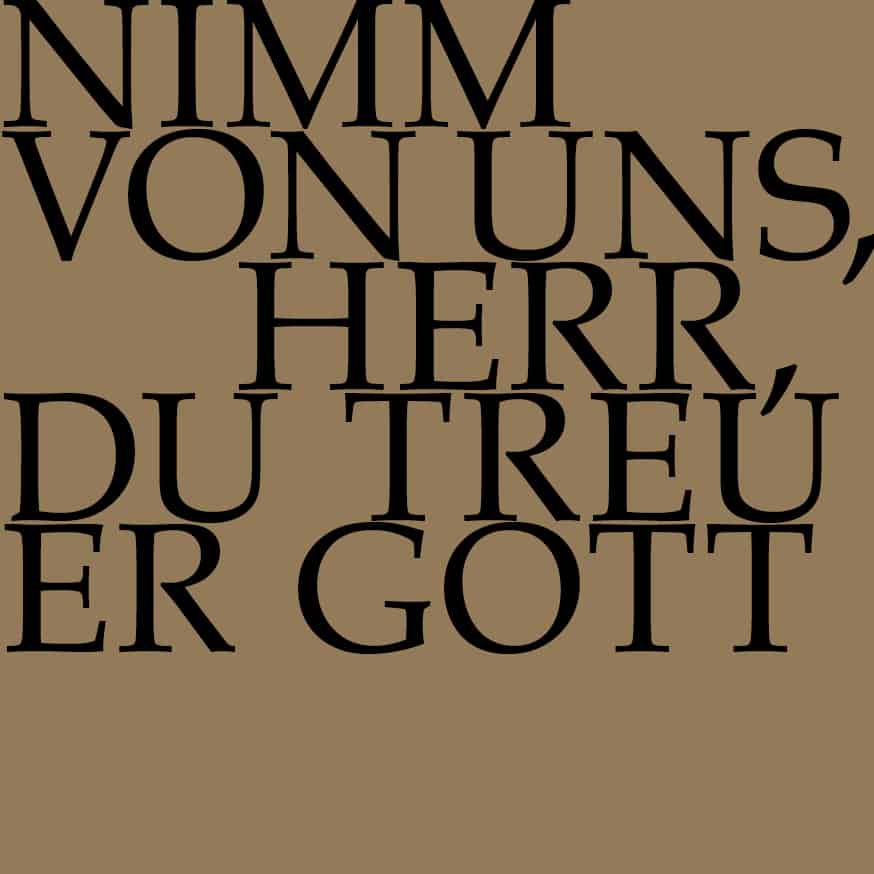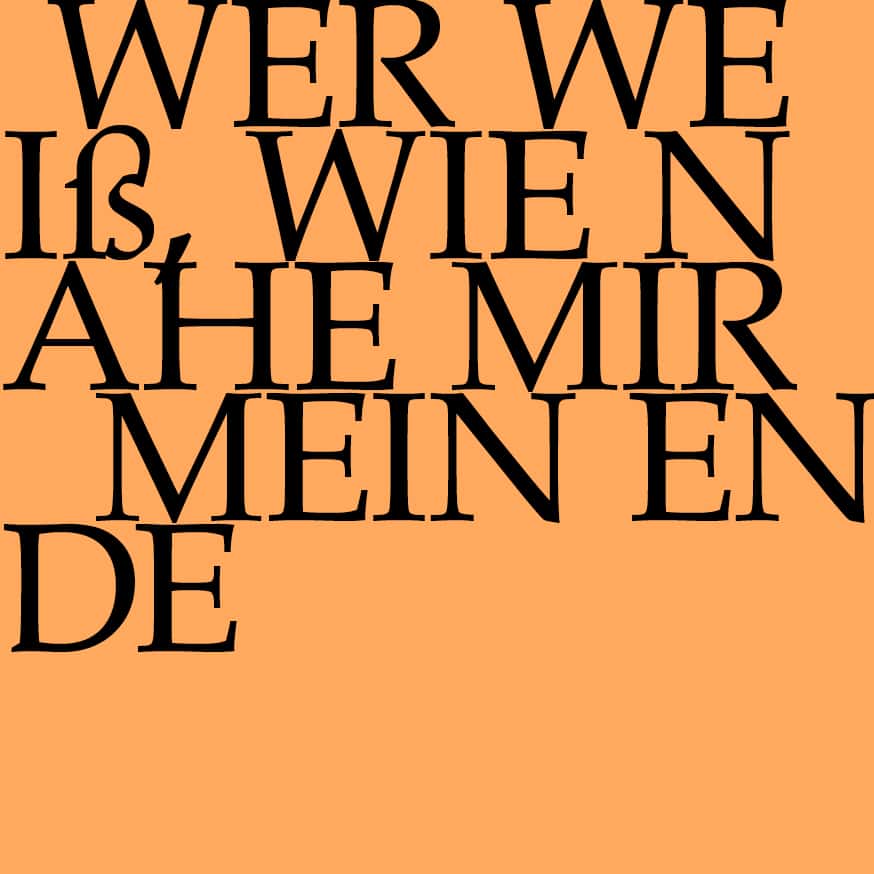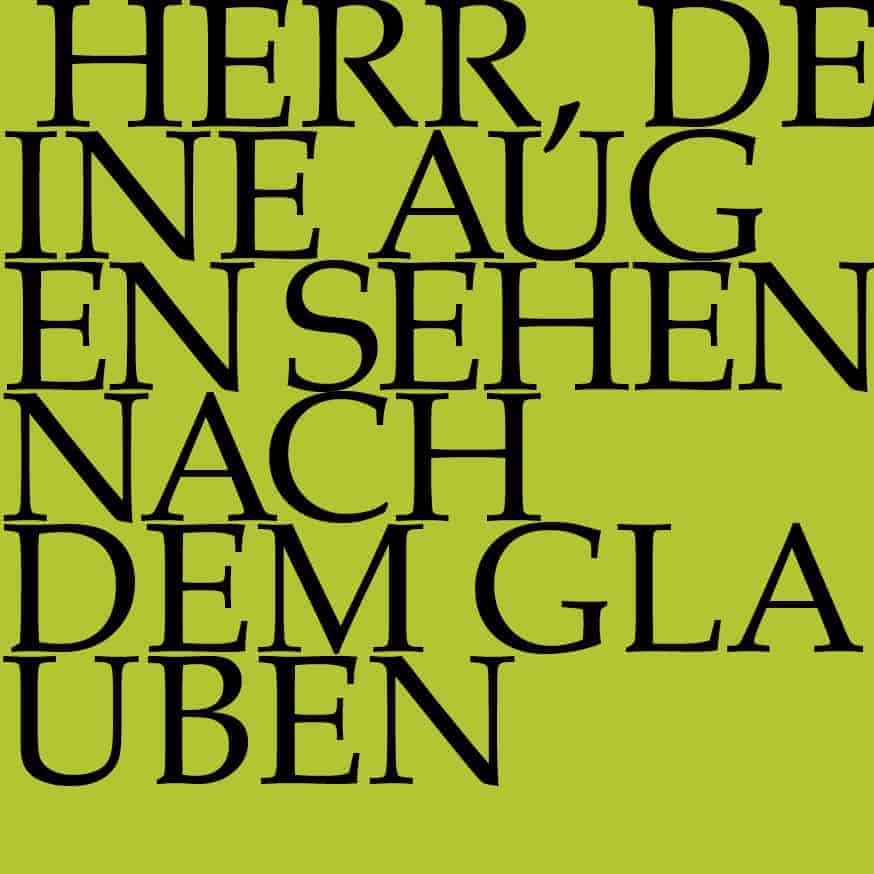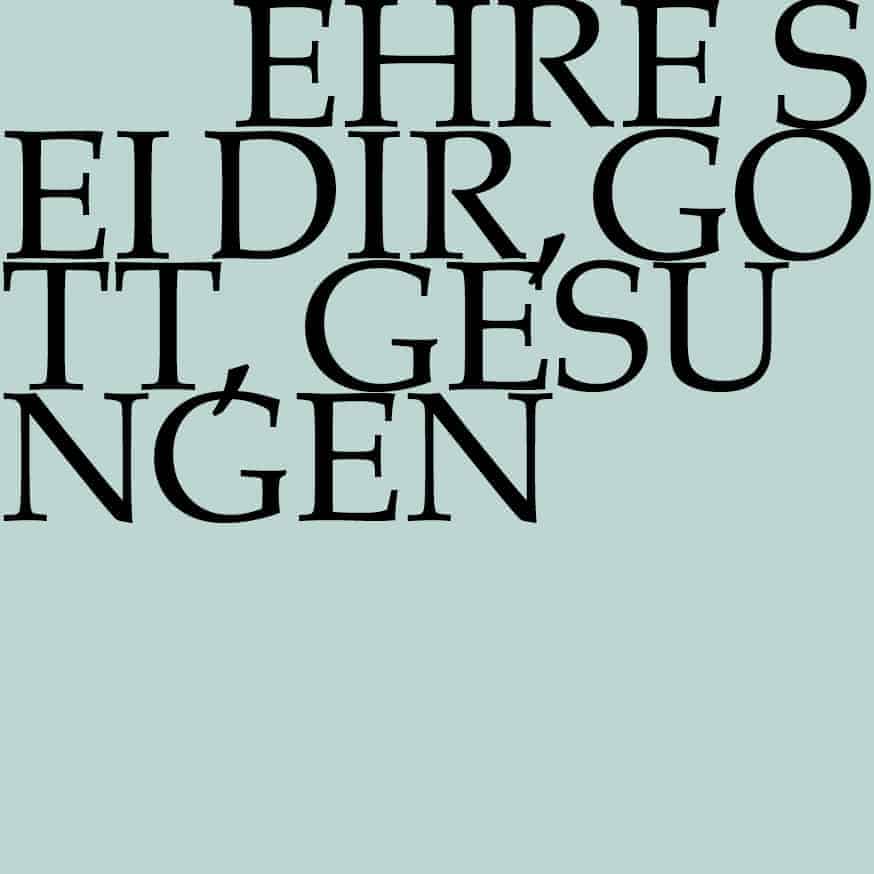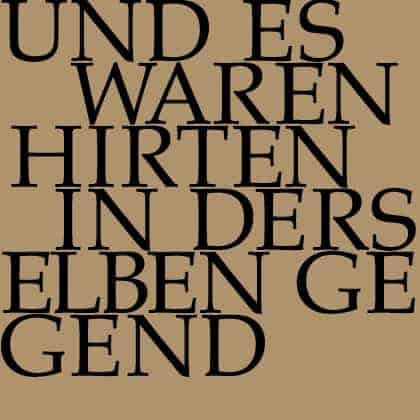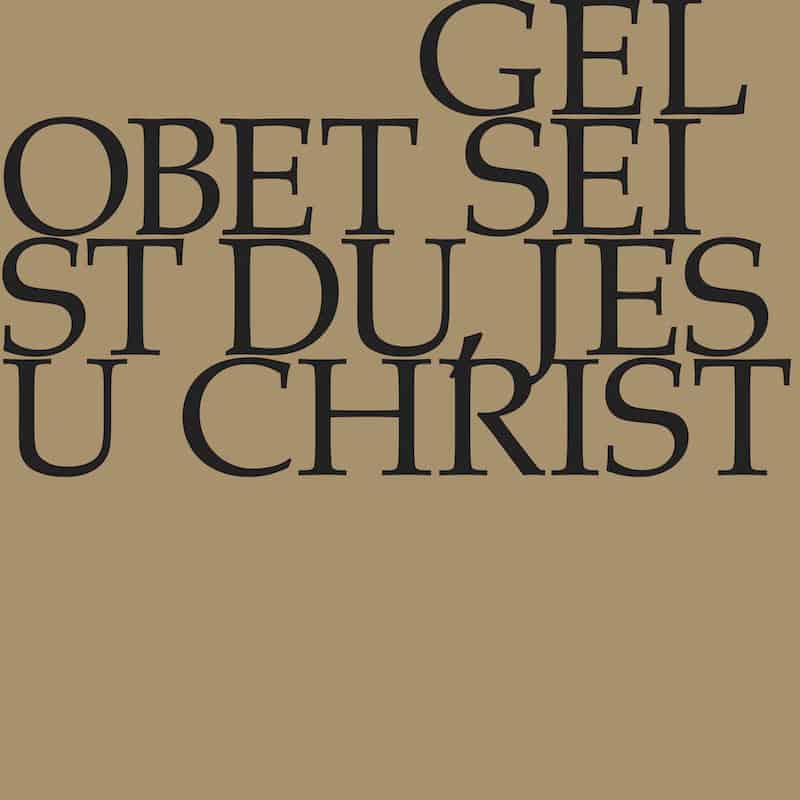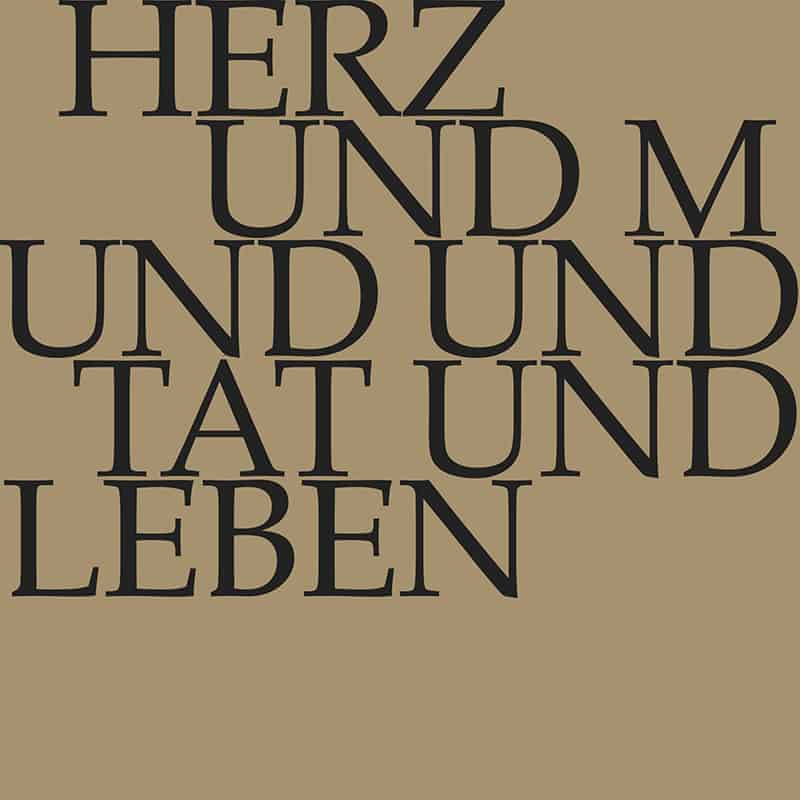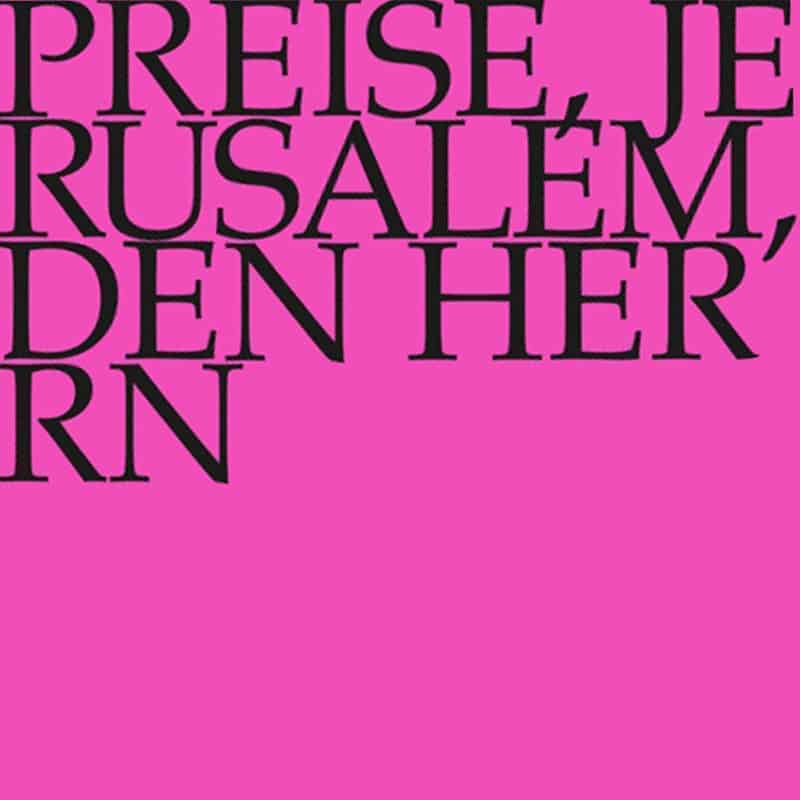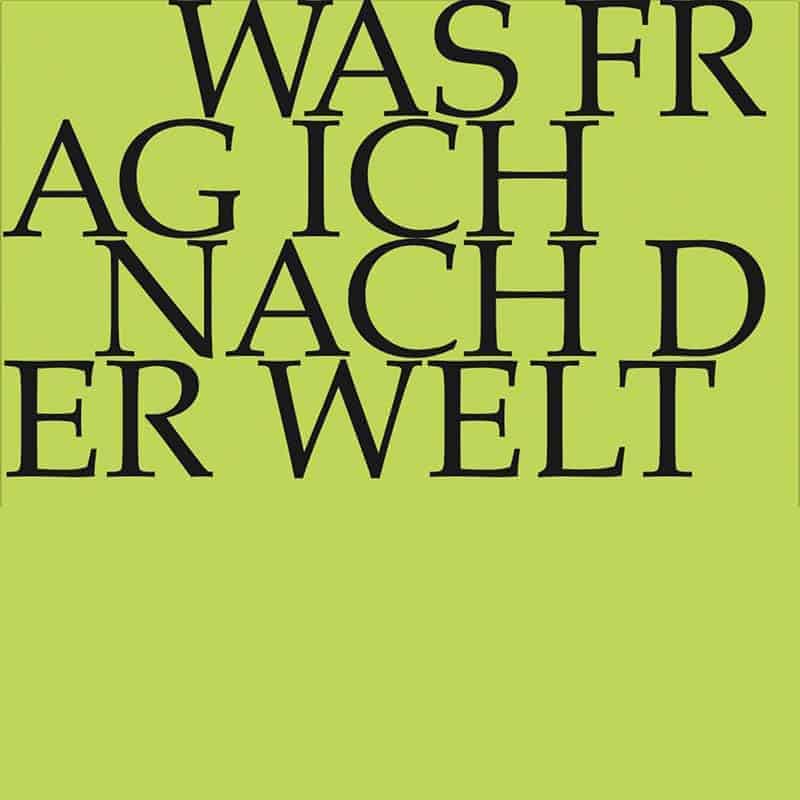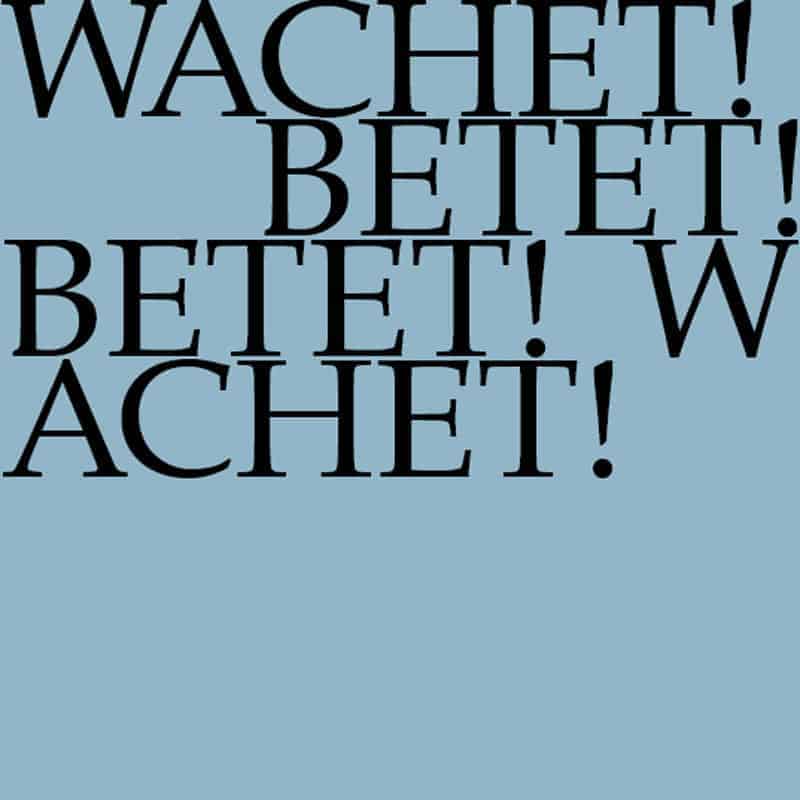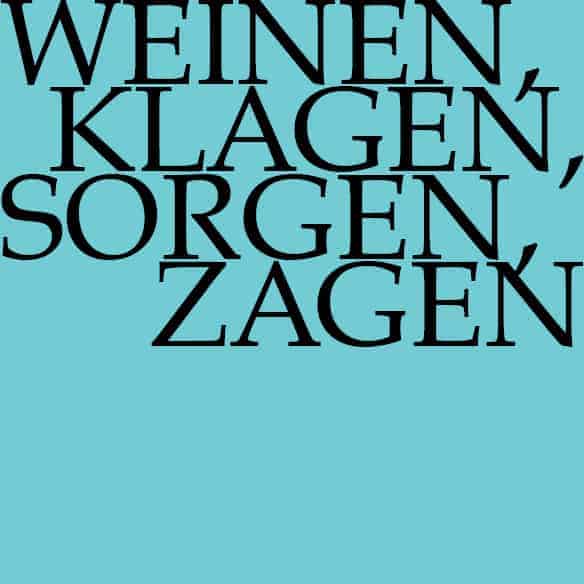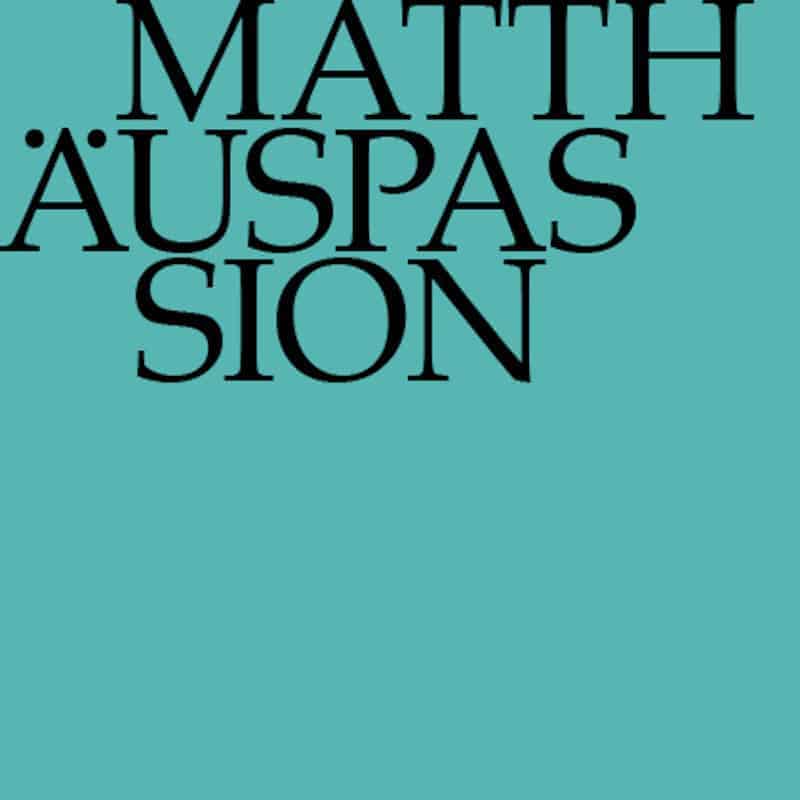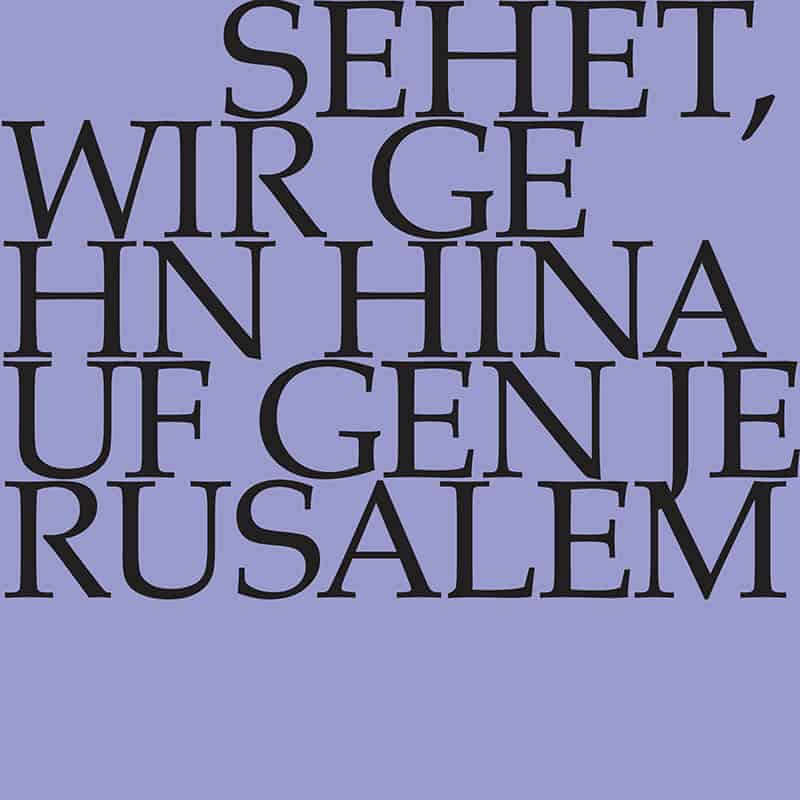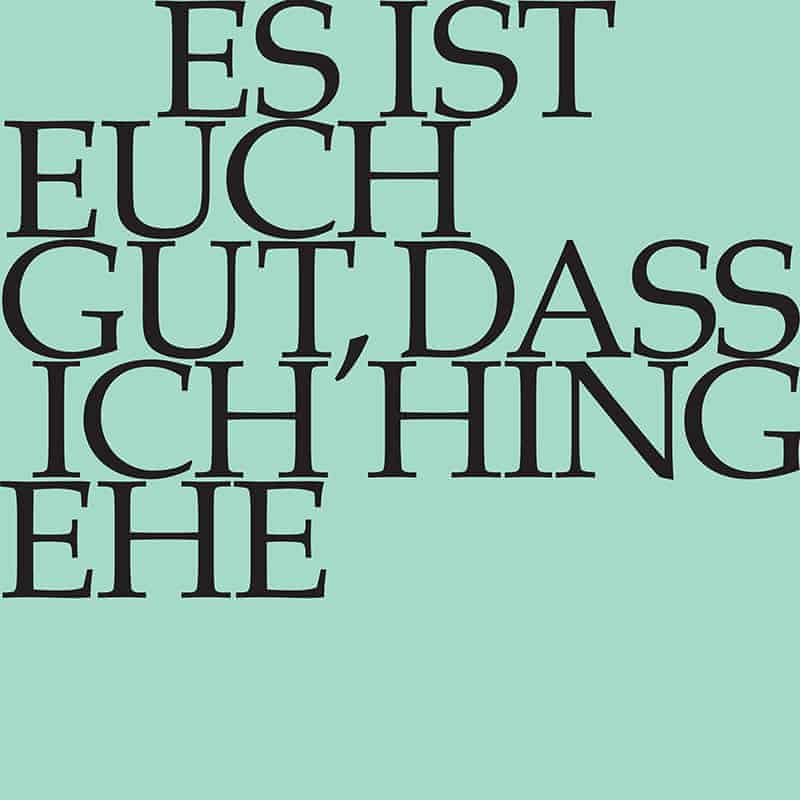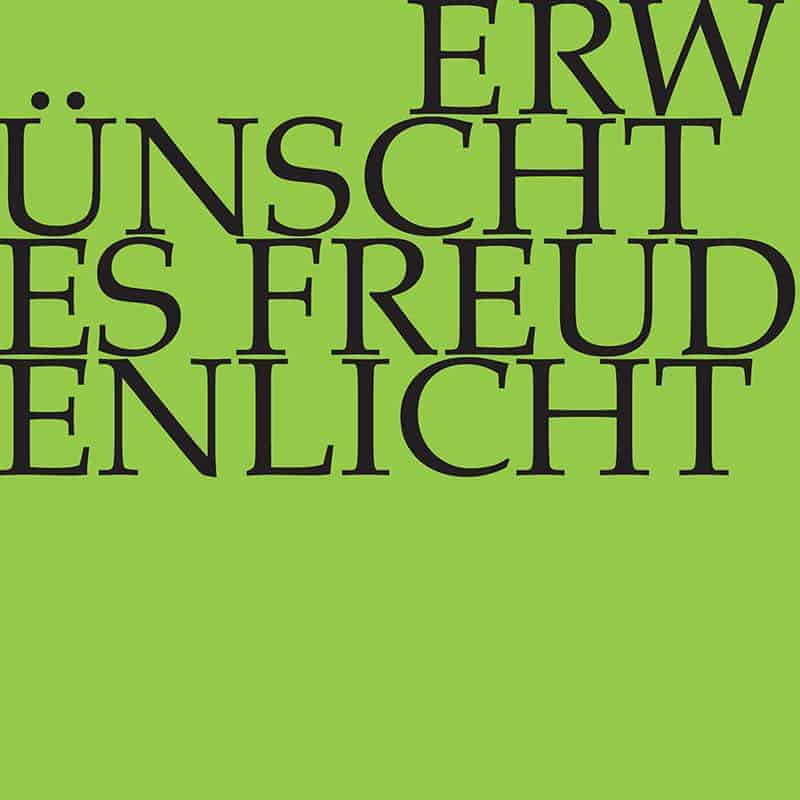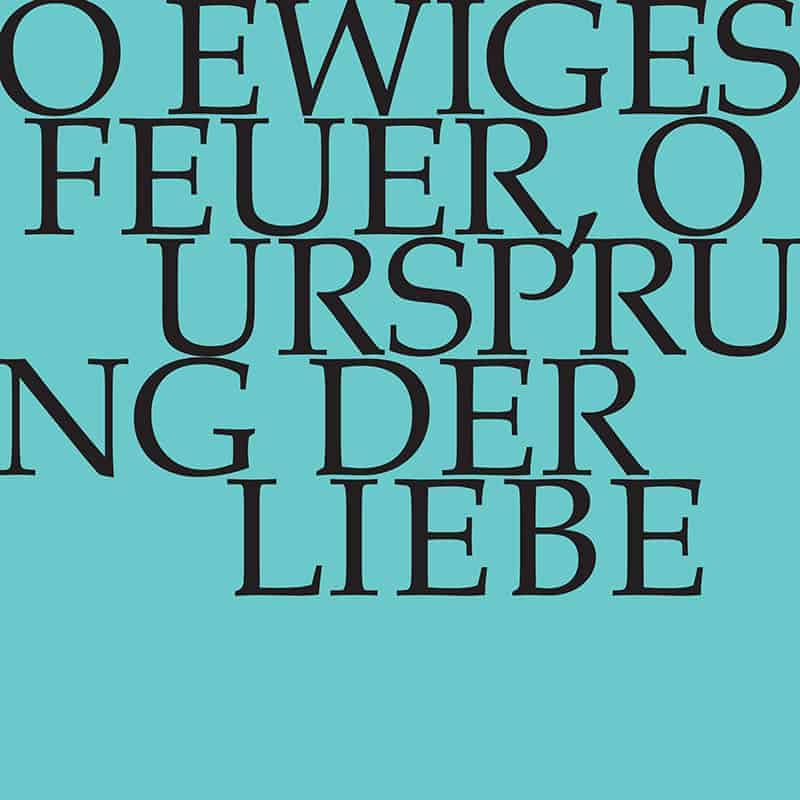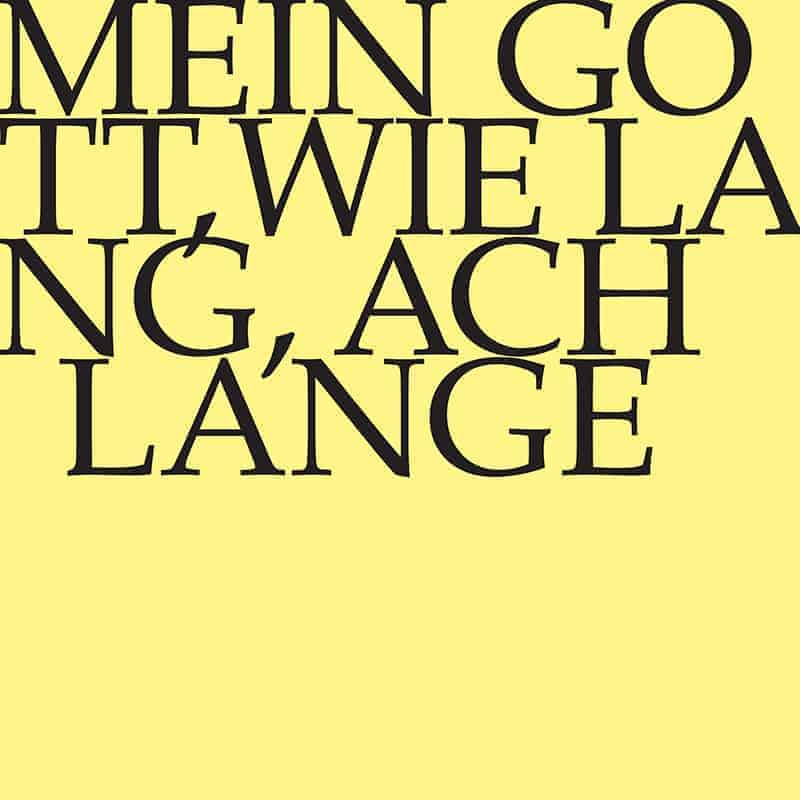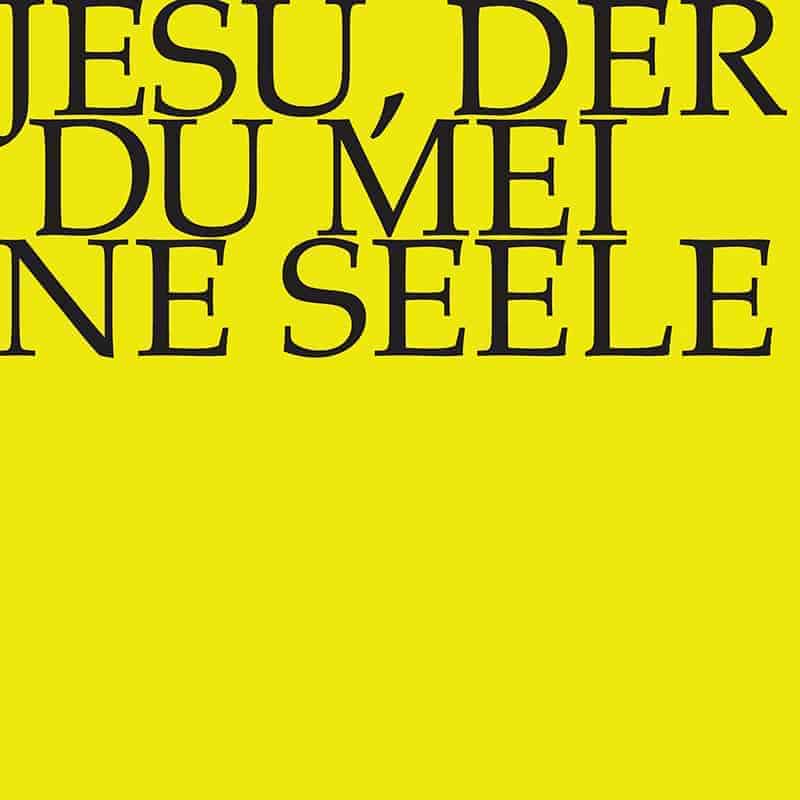(Where God the Lord stands with us not) for alto, tenor and bass, vocal ensemble, horn, oboe I+II, strings and basso continuo
Archives
Nimm von uns, Herr, du treuer Gott
(Take from us, Lord, thou faithful God) for soprano, alto, tenor and bass, vocal ensemble, cornett, trombone I–III, oboe I+II, oboe da caccia, strings and basso continuo
Wer weiß, wie nahe mir mein Ende
(Who knows how near to me my end is?) for soprano, alto, tenor and bass; vocal ensemble, horn, oboe I+II, strings and basso continuo
Herr, deine Augen sehen nach dem Glauben
(Lord, thine eyes look after true believing) for soprano, alto, tenor and bass, oboe I+II, transverse flute, strings and basso continuo
Ehre sei dir, Gott, gesungen
(Glory to thee, God, be sounded) for soprano, alto, tenor and bass, vocal ensemble, oboe d’amore I+II, strings and basso continuo
Und es waren Hirten in derselben Gegend
(And there were shepherds in that very region) for the Second Day of Christmas, for alto, tenor and bass, vocal ensemble, transverse flute I+II, oboe d’amore I+II, oboe da caccia I+II, strings and basso continuo
Gelobet seist du, Jesu Christ
(All glory to thee, Jesus Christ) for soprano, alto, tenor and bass, vocal ensemble, horn I+II, timpani, oboe I–III, strings and basso continuo First performed on 25 December in 1725, cantata BWV 91 “Gelobet seist du, Jesu Christ” (All glory to thee, Jesus Christ) is a glorious Christmas composition befitting Bach’s chorale cantata cycle. Despite … Read More
Herz und Mund und Tat und Leben
(Heart and mouth and deed and living) for soprano, alto, tenor and bass, vocal ensemble, tromba, oboe I+II, oboe d’amore, oboe da caccia I+II, strings and basso continuo
Preise, Jerusalem, den Herrn
(Praise, O Jerusalem, the Lord) for soprano, alto, tenor and bass, vocal ensemble, trumpets I-IV, timpani, flauto dolce I+II, oboe I-III, oboe d’ amore I+II, strings and basso continuo When Bach commenced his position as Thomas Cantor in 1723, he was, despite a long selection process with many rival candidates, the great hope of an … Read More
Was frag ich nach der Welt
(What need I of this world) for soprano, alto, tenor and bass, vocal ensemble, transverse flute, oboe I+II, bassoon, strings and basso continuo It would be a disservice to the cantata “Was frag ich nach der Welt” (What need I of this world), composed for the Ninth Sunday after Trinity in 1724, were we to … Read More
Halt im Gedächtnis Jesum Christ
(Hold in remembrance Jesus Christ) for alto, tenor and bass, vocal ensemble, corno da tirarsi, transverse flute, oboe d’ amore I+II, bassoon, strings and basso continuo The introductory chorus to cantata BWV 67 opens with a heroic horn figure and a triadic, fanfare-like theme that underscores the proximity of Quasimodogeniti Sunday to the Easter events … Read More
Wachet! Betet! Betet! Wachet!
(Watch ye, pray ye, pray ye, watch ye!) for soprano, alto, tenor and bass, vocal ensemble, tromba, oboe, bassoon, violoncello, strings and continuo Originally composed in Weimar for the Second Sunday in Advent, Bach reworked cantata BWV 70 in Leipzig in 1723, moving it to the 26th Sunday after Trinity and thus to the end … Read More
Weinen, klagen, sorgen, zagen
(Weeping, Wailing, Grieving, Fearing) for alto, tenor and bass, vocal ensemble, tromba, oboe, bassoon, strings and continuo
Matthäuspassion
(St Matthew Passion) The double-choir St Matthew Passion, already termed the “grosse Bassion” (great Passion) in an early posthumous tribute by the Bach family, is one of Bach’s most comprehensive and significant sacred compositions.
Sehet, wir gehn hinauf gen Jerusalem
(See now, we’re going up to Jerusalem) for alto, tenor, bass and soprano section of the vocal ensemble, oboe, bassoon, strings and continuo The cantata “Sehet, wir gehn hinauf gen Jerusalem” (See now, we’re going up to Jerusalem) BWV 159, was written for Estomihi, the last Sunday service with concerted music prior to the musical … Read More
Es ist euch gut, daß ich hingehe
(It is for you that I depart now) for alto, tenor and bass, four-part choir, oboe d’amore I+II, bassoon, strings and continuo
Erwünschtes Freudenlicht
(O welcome light of joy) for soprano, alto, tenor and bass, transverse flute I+II, strings and continuo
O ewiges Feuer, o Ursprung der Liebe
(O fire everlasting, O fountain of loving) for alto, tenor and bass, vocal ensemble, trumpets I–III, timpani, flauto traverso I+II, oboe I+II, bassoon, strings, organ and harpsichord. The Pentecost cantata “O ewiges Feuer, o Ursprung der Liebe” (O fire everlasting, o fountain of loving) BWV 34, is particularly concise in construction despite its magnificent high-day … Read More
Mein Gott, wie lang, ach lange
(My God, how long, how long then?) for soprano, alto, tenor and bass, basoon, strings and continuo.
Jesu, der Du meine Seele
(Jesus, thou who this my spirit) for soprano, alto, tenor and bass, vocal ensemble, flute, oboe I+II, horn, bassoon, strings and continuo. The cantata “Jesu der du meine Seele” (Jesus, thou who this my spirit) BWV 78 numbers among the most starkly contrasting compositions of Bach’s cantata oeuvre. Composed for the Fourteen Sunday after Trinity … Read More


